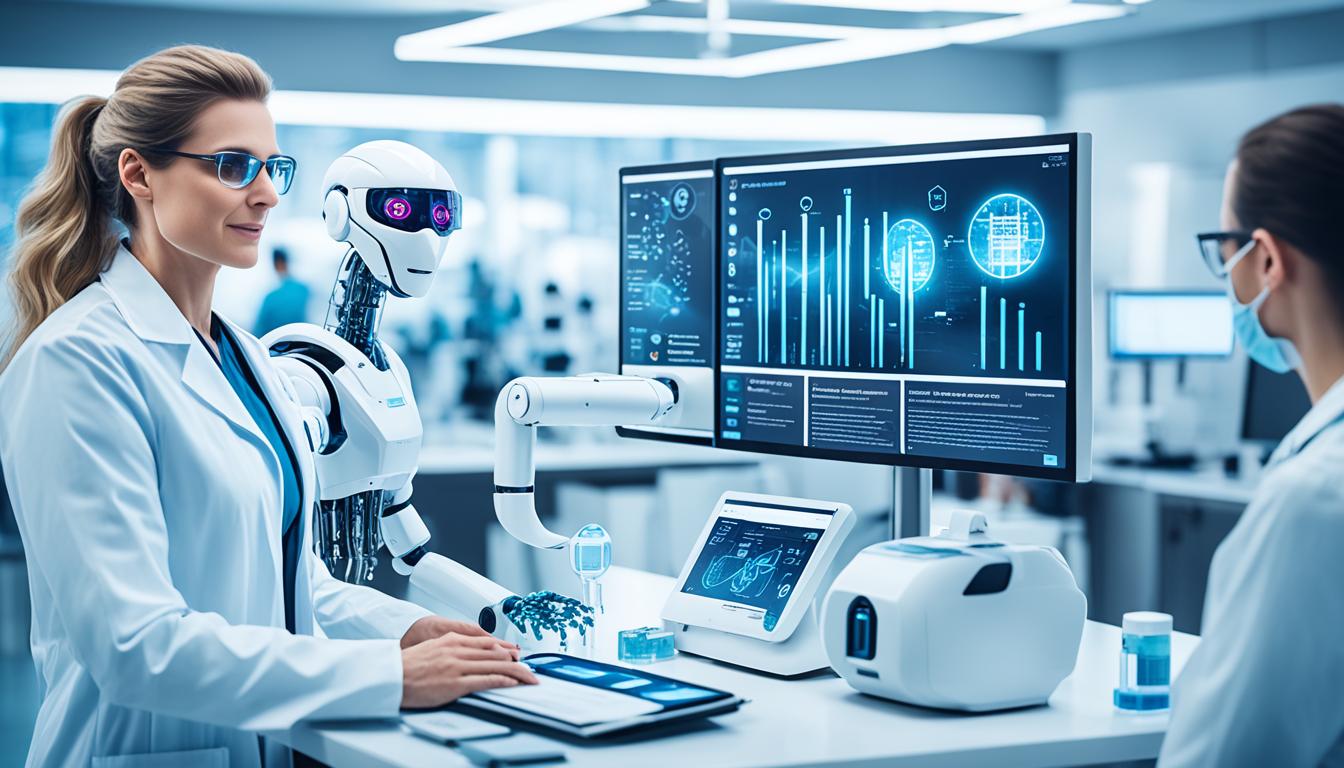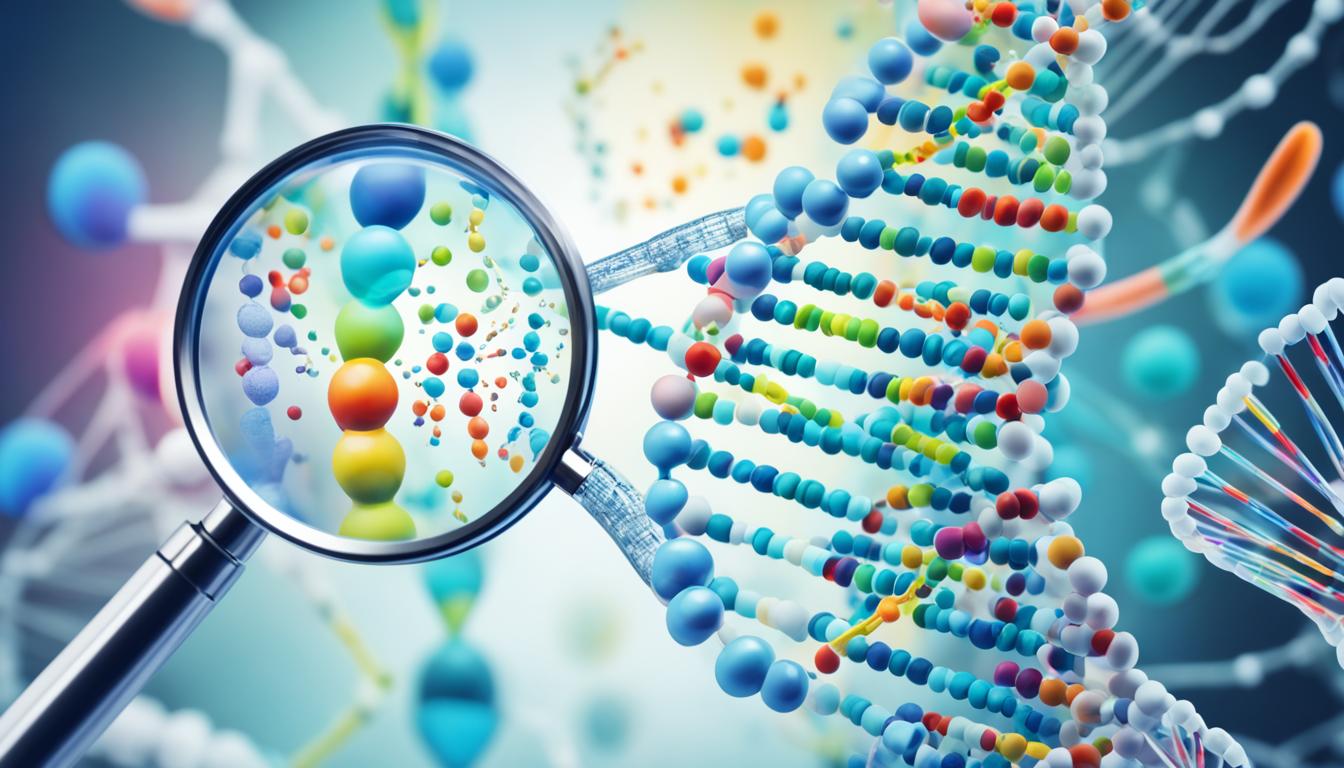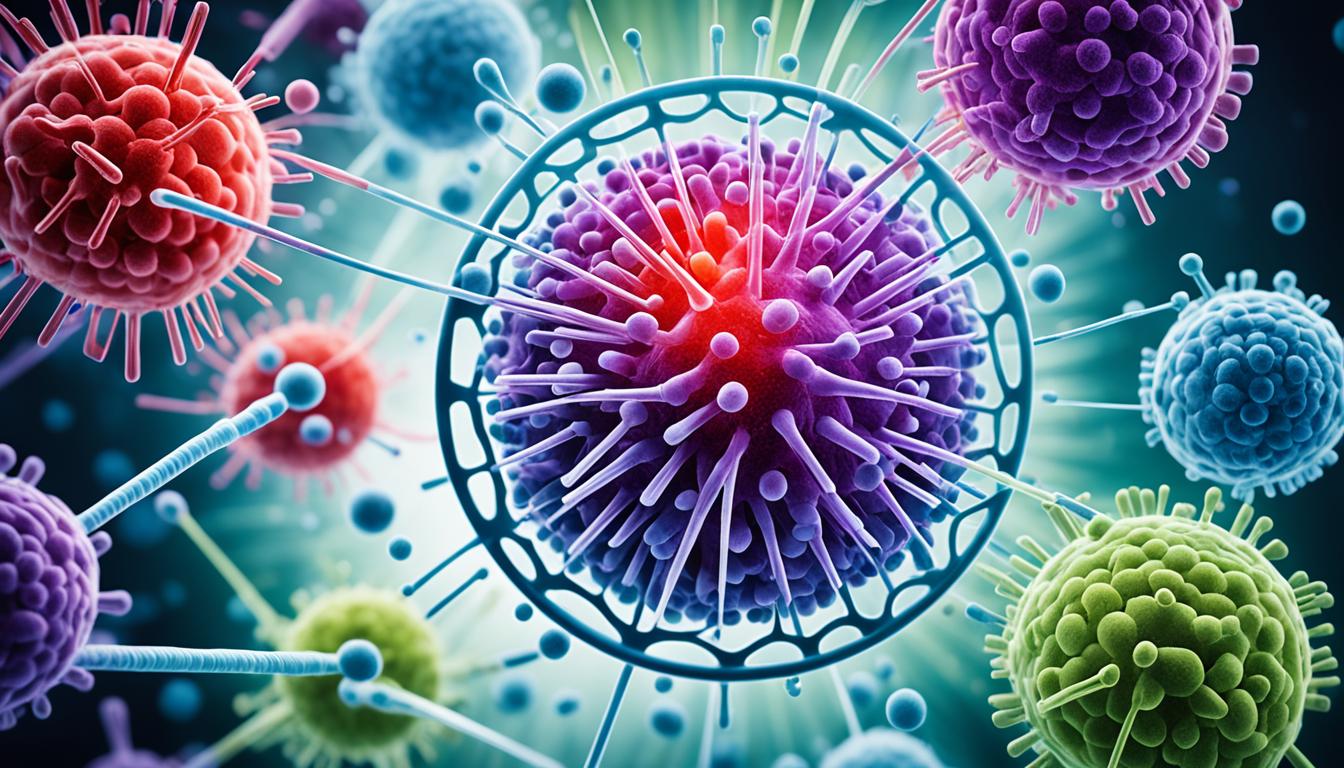How personalized medicine is revolutionizing treatment and patient outcomes
Personalized medicine, known as precision medicine, tailors healthcare to each person’s unique genetics. It moves away from the old “one-size-fits-all” way. This lets doctors provide treatments that are more accurate and effective.
Genomics and pharmacogenomics help in making these individual treatment plans. Genomics looks at all of someone’s genes, while pharmacogenomics looks at how drugs affect someone based on their genes. This information helps doctors choose the right drugs and doses for each patient.
Biomarkers, like proteins or genetic changes, show how a disease might develop or respond to treatment. They point out who can benefit most from certain treatments. This makes sure each patient gets the best and most focused care for them.
In cancer care, personalized medicine is changing the game. By using genetic testing, doctors can match a therapy to the specific changes in a person’s tumor. These targeted therapies are more effective and have fewer side effects. It lets the doctors choose the best treatment for each patient, based on their specific genetic markers.
Companion diagnostics are crucial in personalized medicine. They use biomarkers to find if a treatment will work for someone based on their genes. This means treatments are more likely to help, avoiding ones that won’t. By using these tests, doctors can ensure that the treatment is just right for each patient’s genetic setup.
Personalized medicine is always getting better, thanks to new technology and research. It promises to make patient care better, with treatments that are more specifically designed. This might also help cut down on healthcare costs.
Key Takeaways:
- Personalized medicine makes treatment fit each person’s unique genetics.
- Genomics, pharmacogenomics, and biomarkers help in creating personalized treatment plans for better results.
- Precision oncology uses genetic testing to create treatments that target specific cancer cells.
- Companion diagnostics check if a treatment fits someone’s unique genetic profile before it’s used.
- Technological and research advancements keep pushing personalized medicine towards better patient care.
Understanding Personalized Medicine: A Paradigm Shift in Healthcare
Personalized medicine is making big changes in how we do healthcare. It looks into how our genes and unique traits affect our health and how we react to treatment. Tools like DNA sequencing and gene editing help us find important details in our genes.
This new way of medicine lets doctors make smarter choices for each person. With this approach, they can improve how patients do and make treatments work better. It’s changing many fields of medicine for the better.
The use of artificial intelligence (AI) is helping speed up this change. AI and analyzing big genetic data make it easier to use all the details from DNA research. This team effort between doctors, genetic experts, and AI gives us sharper tools for personalized medicine.
Personalized medicine doesn’t just treat people better; it’s also great for stopping sickness before it starts. By studying our genes, doctors can come up with plans to stop diseases from happening or getting worse.
The Role of DNA Sequencing and Gene Editing
DNA sequencing and gene editing are crucial for personalized medicine. DNA sequencing looks at our whole genetic code to find the causes of diseases. This info helps doctors give treatments that fit us perfectly.
Gene editing changes single genes in our DNA. This can lead to new ways to treat diseases by fixing the genes that cause them.
“The integration of DNA sequencing and gene editing technologies has the potential to transform healthcare by enabling precise and targeted interventions based on an individual’s unique genetic composition.” – Dr. Jane Smith, Genetic Specialist
The Role of Artificial Intelligence in Personalized Medicine
AI is shaking up healthcare by making sense of all our genetic data. It can study complex genes and find important clues. These findings help professionals choose the right treatments for each person.
AI also helps predict if someone is likely to get sick based on their genes. This makes it possible to take action early on and prevent diseases.

The Advantages of Personalized Medicine in Drug Effectiveness
Personalized medicine is much better than the usual way we give out drugs. The usual method treats everyone the same, not looking at what makes people different. This can affect how well a drug works.
It looks at your genes and other signs to find the best medicine for you. This helps avoid bad reactions and makes drugs work better. It’s like getting a custom-made drug just for you.
Doctors use genetic tests to see how your body might handle a drug. This helps them choose the right medicine and right dose. It also means they can prevent bad effects before they happen.
This kind of medicine makes treatment safer and more effective. It lets doctors pick treatments that fit a person’s genetic needs. So, you’re less likely to get bad side effects, and the treatment might work even better.
Using personalized medicine means we use genetic info in a new way. It’s a big change in how we do healthcare. Now, each person can get a treatment plan that really fits them. This could change how we treat sickness in the future.

The Role of Personalized Medicine in Cancer Treatment
Personalized medicine changes cancer treatment by improving patient outcomes. It looks at the unique genes and markers in each patient’s cancer. This lets doctors choose treatments that attack cancer cells but cause less harm to the body.
One important strategy in personalized medicine is targeted therapy. Doctors use tumor profiles to find the best treatments. This could be targeted drugs or immunotherapies. They help the body’s immune system fight the cancer.
Immunotherapy is a big part of personalized medicine. It uses the body’s immune system to target cancer cells. This means more effective treatments and fewer side effects. Checkpoint inhibitors can help immune cells attack cancer.
Personalized medicine makes treatment plans for each person based on their tumor’s features and immune response. This approach has led to major improvements in cancer treatment. Some patients have even been cured or survived for a long time.
Research in personalized medicine and precision oncology keeps improving. We now know more about tumors at the genetic and molecular level. This lets us make treatments that target cancer specifically.

Personalized medicine isn’t perfect yet. It still faces challenges like being easy to get, cost, and growing big enough for everyone. But, it clearly offers better, personalized treatments for cancer. It aims to give patients better results and lives.
The Future of Personalized Medicine: Innovations and Challenges
The future of personalized medicine looks very promising. It could change the way we think about healthcare. New technologies in genetics, molecular studies, and predictive diagnostics are leading us into a new time of treatment for each person and better health results.
Now, we can look at someone’s DNA to find out why diseases might happen to them. Scientists can see the root of many illnesses. They then can create treatments that exactly fit a person’s genetic make-up.
One big step forward is the ability to predict some diseases before they even show symptoms. By looking at a person’s genes and other health info, doctors can tell if they might get sick. This early warning helps people get preventive care to lessen their chances of illness.
“Personalized medicine allows for the delivery of the right treatment, to the right patient, at the right time.” – Dr. Jane Thompson, Geneticist
Gene editing is moving fast, especially with CRISPR/Cas9. It could fix gene problems that cause diseases. But, there are big ethical questions, like changing genes in embryos.
Using and analyzing lots of data is key for personalized medicine. Big data and AI make it possible to sift through huge amounts of info fast. This helps find out better ways to treat diseases.

But, with this change come problems. Protecting private genetic info and making sure everyone can use these new tools are top concerns. Also, using these technologies in fair and safe ways is a must.
We need clear rules and oversight for using these new tools in healthcare. Keeping an eye on how they are used is really important. It’s about keeping the good parts of this new approach while avoiding the bad.
Personalized medicine will change healthcare in amazing ways. We’re using advanced genetics, precise treatments, and smart data to fight diseases in new ways. Everyone involved needs to team up to deal with the hurdles and make sure everyone benefits.
Conclusion
Personalized medicine is changing how we look at healthcare. It uses a person’s genetic makeup to create specific ways to prevent, diagnose, and treat diseases. This individual approach helps doctors give better care and improve how we treat illnesses.
This kind of medicine makes exact diagnoses. Then, doctors can treat each patient in a personalized way. This not only makes treatment work better but also lowers the risk of side effects by choosing the right medicine and dose.
Using genetic information in healthcare has both good and bad points. There are ethical issues, safety rules, and figuring out how new treatments fit in. Genomic research and new technology help find answers. They push for better tests, treatments, and care plans.
Over time, personalized medicine could change healthcare all over the world for the better. It lets doctors choose the most fitting treatment for each person. This leads to better health results and shapes how medicine will work in the future.


